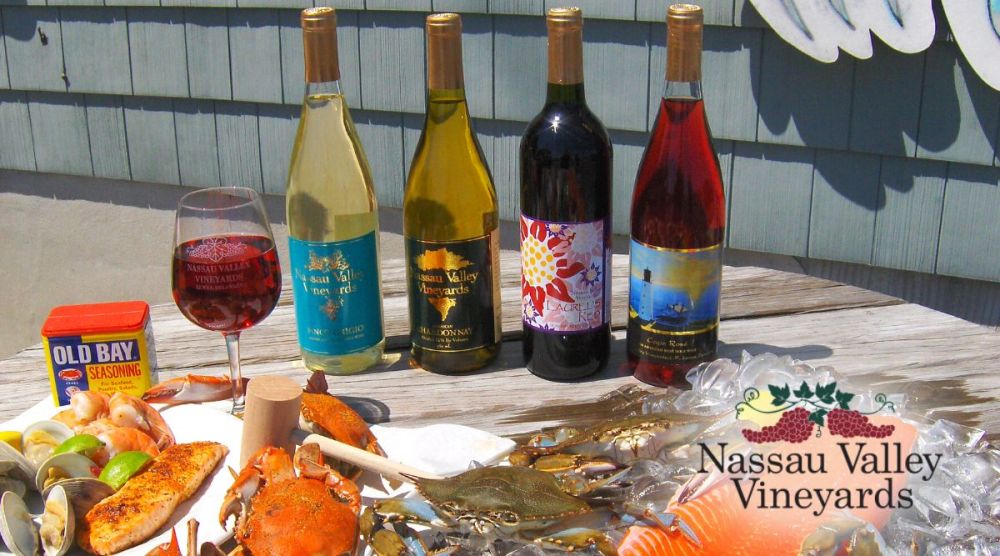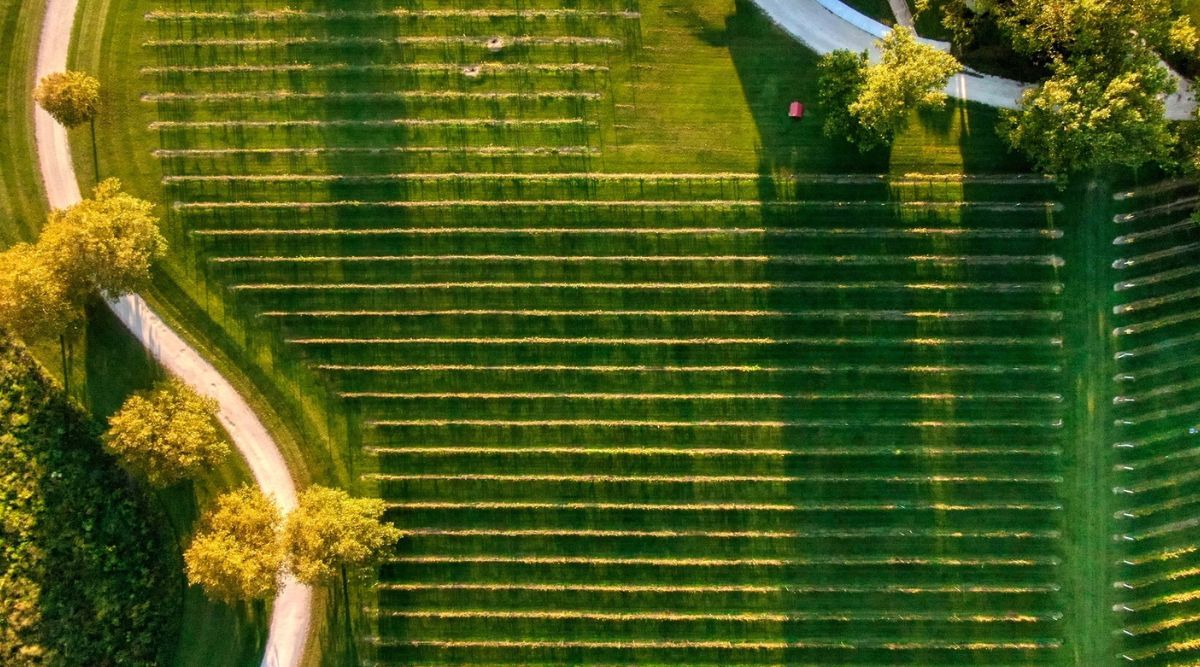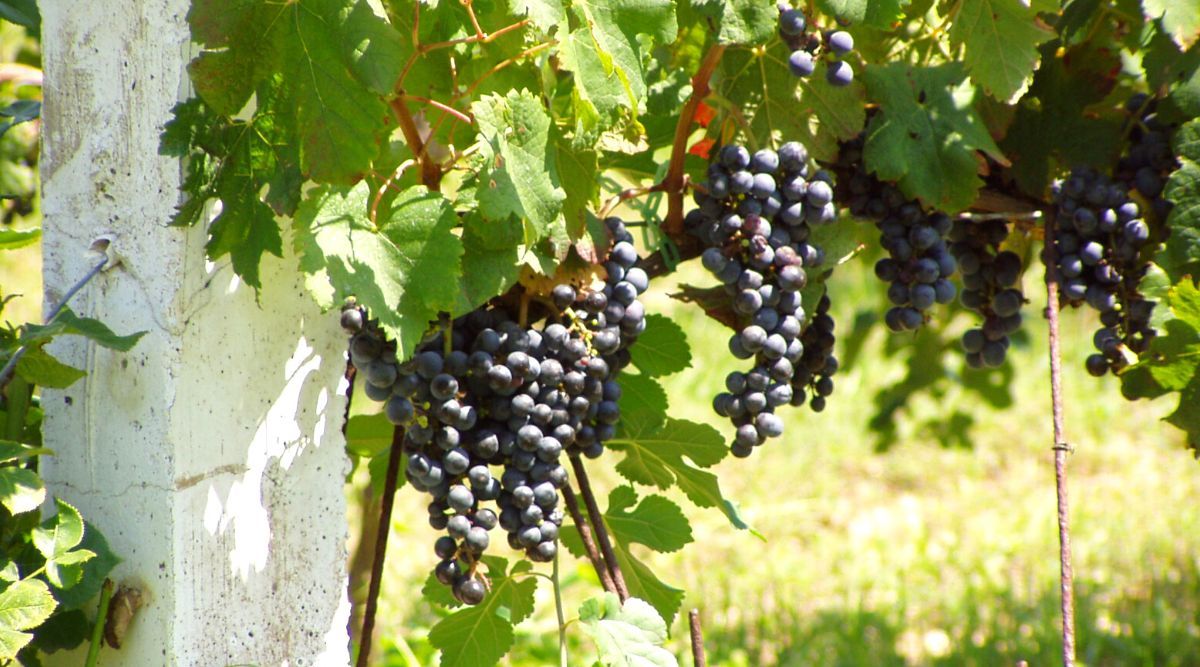Nassau Valley Vineyards of Lewes is Delaware’s Pioneer Winery

In terms of age, Delaware’s wine industry is a baby. And that baby’s mother is Nassau Valley Vineyards co-owner Peggy Raley.
Raley and her father Bob almost single-handedly started the Delaware winemaking tradition about 30 years ago, when they planted their vineyard in Lewes and championed legislation to enable commercial winemaking.
Delaware had long been a state where it was illegal to operate a small-scale alcohol-producing facility – likely a holdover from more puritanical times. Raley, a Delaware-native, originally left home to globetrot and pursue a career in the wine industry. She ended up working for Les Amis du Vin International and The Friends of Wine magazine for several years. Eventually, citing the Delaware “sand in her shoes” that she never got out, she returned home to the beaches in the 1980s and vowed to bring winemaking with her. The Delaware vintner and her father planted their first grapes in 1987, helped change the laws in 1991 and opened the doors of Nassau Valley Vineyards in 1993.
“I drafted the legislation that the General Assembly ended up passing – it essentially created what is known as farm wineries in the state,” she said. “The legislation actually ended up opening the door for the entire craft beverage industry here. The manufacturing and reselling clause that was passed through was done in a way that didn’t break down the three-tier system (of Delaware’s alcohol distribution policy). So other craft brewers began popping up after that.”
Raley notes the old legislation truly had been the only barrier for Delaware winemaking. The state’s growing conditions, she said, are excellent.
“Our conditions are very conducive to growing grapes,” she said. “Our soil, especially in the southern part of the state, is sandy, which grapevines love. Our proximity to the Delaware Bay and Atlantic Ocean also makes for a nice temperate growing climate.”
Nassau Valley Vineyards has thrived since its opening. The operation quickly increased its menu of 14 different wines and has achieved an extensive collection of awards to drape around their bottlenecks.
“We’re at over 600 medals from various international competitions,” Raley said. “We’ve earned the respect of the wider wine world itself. I still have people say all the time, ‘It can’t be as good as the wine from the typical regions, because it’s from Delaware.’ But it is.”
Ramping up production over the years, Raley said her facility now produces between 3,800 and 5,000 cases per year depending on growing conditions. Many of the grape varieties are grown on their farm, but some are trucked in from other parts of Delmarva.
“We grow cabernet sauvignon, merlot, cabernet franc, petit Verdot and chardonnay – so we’re concentrating on the traditional European varieties,” she said. “We contract for a few hybrids from other growers on the Eastern shores of Virginia and Maryland. We get some things shipped in from the Finger Lakes as well, but all the wine is actually made here.”


More Than Wine
Like most craft beverage facilities, Nassau Valley Vineyards quickly became a destination. In addition to selling its high-quality wine, the vineyard offers tours, serves as an event venue and holds a regularly scheduled farmer’s market.
“We weren’t even open a full calendar year before a couple came in and asked if they could get married here,” said Raley. “I was like, ‘You want to do what?’ But we kept getting requests. We started holding ceremonies outside in tents and even in the wine cellar. Things got crowded quickly, though, so we first built a 3,600-square-foot space and later an additional 8,400-square-foot event center, and it’s been an important part of our businesses ever since the beginning. We’re one of the few places at the beach that can accommodate over 300 people in an interior building.”
The farmer’s market came more recently.
“About five years ago, we started hosting them every Sunday during the growing season,” said Raley. “All kinds of local growers, artisans and crafters show up for it, and it’s a great time. We have a sangria bar, live music, winery tours and art shows. For a lot of local folks – and visitors – it’s their Sunday hang. COVID-19 threw things for a bit of a loop, but we slowly started to reintroduce everything while observing restrictions.”
As for the future, Raley, who now runs the vineyards with her sister and business partner Suzette Hopkins, says she plans to grow and refine the young Delaware vintners’ tradition.
“Tastes have changed in recent years, and a lot more people want to be aware of exactly where what they’re eating and drinking comes from,” she said. “When I first opened, I scarcely saw anyone under 30 come through the door, but the demographics have shifted. People are very excited about trying out and enjoying local wineries and breweries.”